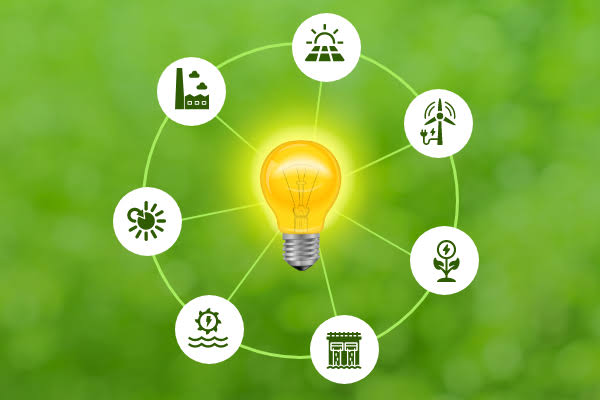Amid sudden surges and fluctuations in the energy market, you may often face challenges maintaining a strict household budget. Saving money on utility bills is an essential step to minimize household expenses. You can use several strategies to achieve it, including switching to renewable energy.
Adopting effective and practical strategies can help you get the lowest electricity rates in Texas and contribute to your household savings. This article explores ways to reduce energy bills and build a sustainable lifestyle.
Assess Your Consumption Habits With an Energy Audit
One of the essential steps in reducing your home energy usage is to assess your household’s energy consumption habits. Methodically audit the energy usage of your household to identify when and where you are wasting energy. It involves more than checking whether you switch off the lights when leaving the room.
You have to factor in aspects like the efficiency of your household electronic appliances, especially the ones that work all day. It is worth noting that many energy providers offer free and discounted energy audits. However, you also have the option to conduct the audit by yourself using online tools and guidelines. If you’re looking to avail more sustainable and affordable energy plans, you can check out texas power choice.
Switch to Energy-efficient Appliances
Your household appliances play a significant role in your energy consumption habits. For instance, old electric appliances like refrigerators often have high energy consumption rates, which can be reflected in your utility bills. If you are serious about minimizing household energy consumption, consider upgrading your appliances while prioritizing energy-efficient models.
Furthermore, it would help if you made it a habit to look for the Energy Star label for every electronic appliance you purchase for the household. The star label conveys that the product meets strict pre-defined energy efficiency guidelines. The upfront cost for high-starred appliances may be high, but it provides long-term savings that can easily outweigh your initial expenses.
Upgrade Your Home Insulation
It is always desirable to have a well-insulated home that can retain heat in the winter and stay cool during the summer. Such a home keeps you more comfortable and saves you money because insulation is integral to efficient home energy usage.
Insulation helps you minimize the need to use excessive temperatures on your home heating system, which significantly contributes to your household electricity bills. Hence, investing in quality insulation can enhance your home’s thermal performance, greatly reducing the workload on your household heating system.
Utilize Smart Thermostats and HVAC Maintenance
Another effective strategy to minimize your home’s energy consumption is to install a smart thermostat. Even making such a small change can change your household energy consumption habits. The device can learn your household heating needs and adjust the heating and cooling of your home accordingly.
An automatically controlled heating system for your home ultimately leads to optimized energy usage. Besides that, you must also ensure regular maintenance of your HVAC (Heating, Ventilation, and Air Conditioning) system to reduce home energy consumption.
Make Full Use of Natural Light and Optimized Home Lighting
You must maximize the use of natural sunlight at home whenever it’s possible. Open the curtains and blinds on those sunny days and let the warm air inside. Besides providing natural lighting, it also enables you to freshen up your room. Studies even show that letting sunlight in can positively impact your mood.
You must be careful setting up the lighting for your home if you want to reduce home energy usage. For instance, you must always use energy-efficient CFL and LED bulbs, especially if you intend to utilize them frequently. They are significantly less power-consuming than incandescent bulbs and last longer.
Always Unplug Your Electronics After Use
Electronic devices sometimes draw power despite you turning the switch off. Even if the device draws relatively less power than when it is switched on, the energy loss over time is significant. Suppose you leave your TV or computer plugged in overnight with the switch turned off.
While leaving the plug in occasionally may not impact your home energy consumption, doing so every day can make a significant difference to your home energy use. Consider using smart power strips that can shut off power to your home appliances when not in use.
Ensure Efficient Water Heating
One of the substantial portions of your total household energy expense comes from water heating. It means the more optimized your home’s water heating, the more you can reduce energy usage. Simply bringing down your thermostat temperature to 120°F (49°C) can help you lower energy usage without compromising comfort.
It is also worth considering your water heater and its pipes with proper insulation to minimize heat loss. Setting up your home with new and energy-efficient water heating systems is also worth exploring if you want to reduce home energy usage.
Energy-efficient Landscaping
Another way you can cool down your home without firing up the air conditioning in the summer is to use energy-efficient landscaping. It involves strategically planting shrubs and trees around your home to let in sufficient sunlight while providing shade in the summer.
While implementing energy-efficient landscaping is a long-term process, it is gratifying. It enables you to get shade in the summer and sunlight in the winter. You can even use the landscaping to provide a windbreak from the cold winter winds, minimizing your reliance on the home heating system.
Invest in Renewable Energy
If you are looking for a long-term solution to reduce your home energy usage, renewable energy is the best way to go. Investing in renewable energy, such as solar power, is an excellent way to generate clean, sustainable energy while minimizing your reliance on the grid.
Of course, the initial investment is substantial with most renewable energy, whether solar panels or wind turbines. However, renewable energy also pays for their substantial initial investments in the long run. You also get several government incentives and rebates for installing renewable home power systems.
Educate and Involve the Whole Household
One of the best ways to reduce your home energy usage is to educate the family/household members and involve their active participation in your efforts. While it is easier said than done, it is possible. You can educate your household members about the importance of energy conservation and involve them in your energy-saving practices. With enough patience and effort, even toddlers can make simple energy-saving practices like turning off electronic devices after using them.




